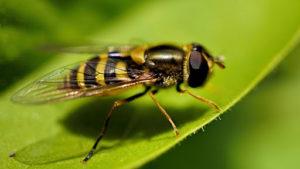Brazilian wasp venom: how one animal can save people
In Brazil and Argentina, a type of wasp is common, which, unlike their other relatives, feed mainly on animal protein. They actively hunt coffee moths, helping farmers in the fight against these pests.
Content
Description of the Brazilian wasp
Brazilian wasps belong to the order Hymenoptera, and differ from other species of wasps in the complex arrangement of nests and the difference between castes.
This type of wasp has a wide clypeus of the anterior part of the head and eyes covered with hairs. The queens differ from the workers in that they have a lighter body and a wider area of the clypeus with brown spots. And they are larger than working individuals.
Место жительствР°
Insects build nests of cellulose, abundantly moistened with saliva, which, when dried, becomes like paper. Wasps attach their dwellings to tree branches, and they have a cylindrical shape. Honeycombs stick to each other, and there can be up to 50 of them in the nest, they can reach 30-40 cm in length.
Brazilian wasp colonies can have up to 15000 workers and contain 250 queens, sometimes more. They live in a large area from Brazil to Argentina.
The record for the number of inhabitants in the colony belongs to the Brazilian wasps - more than a million individuals.
Food
Worker wasps feed on nectar, sweet sap and pollen. But they prey on other insects, feed their larvae with protein food.
The benefits of the Brazilian wasp
The venom of the Brazilian wasp contains the MP 1 peptide, which suppresses malignant prostate cancer cells, bladder cancer cells, and leukemia cells. At the same time, healthy cells are not harmed. The peptide interacts with lipids and damages the structure of the tumor cell.
In the national economy, the benefit of this type of wasp is that it eats the larvae of the coffee moth, which causes great harm. coffee plantations.
A spoon of tar
An insect bite is dangerous to humans and can cause allergies or anaphylactic shock. Inflammation forms around the wound, as after a bite from any other type of wasp.
Conclusion
Brazilian wasps are found in Argentina and Brazil. The benefit of this species is that they destroy coffee moth larvae. Scientists have studied the venom of Brazilian wasps and found that it inhibits the growth of certain types of cancer cells. But still, wasp stings are dangerous for humans, so when insects appear, you need to be careful.
Previous